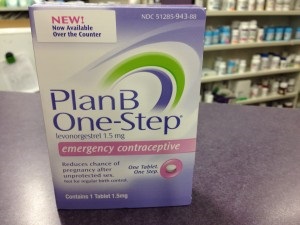By Bob Allen
A Tennessee pharmacist and Baptist church deacon is suing Walgreens in federal court claiming the drug store chain failed to accommodate his religious objection to dispensing Plan B — also known as the “morning-after pill.”
Pharmacist Philip Hall, a deacon at Allardt First Baptist Church in Jamestown, Tenn., shares concerns about a contraceptive drug at the center of the high-profile Hobby Lobby lawsuit headed toward the U.S. Supreme Court challenging required coverage of all FDA-approved forms of birth control and sterilization under Obamacare.
Hall says in a lawsuit filed Feb. 11 in U.S. District Court in Nashville, Tenn., that company policy in the past allowed him to avoid filling prescriptions for what he regards as an abortion-causing drug by referring patients to another pharmacist.
When Walgreens announced last July it would begin selling the drug over the counter, Hall called corporate headquarters to complain. When the first shipment of the over-the-counter version of the drug Levonorgestrel arrived at the store, he purchased all six packages for full retail price and disposed of them.
 Supervisors told Hall he would have to replace the pills. When he said in a meeting that if someone came into the store asking for Plan B he would continue to refer the customer to another employee, he says he was fired on the spot.
Supervisors told Hall he would have to replace the pills. When he said in a meeting that if someone came into the store asking for Plan B he would continue to refer the customer to another employee, he says he was fired on the spot.
Hall claims Walgreens violated Title VII of the Civil Rights Act by failing to accommodate his sincerely held religious beliefs, and that his firing was in retaliation for complaining about the policy change. He also claims protection under a state “right to refuse” law that says no physician or hospital can be required to perform an abortion. He seeks compensatory and punitive damages.
“Americans have the right to live according to their sincerely held religious beliefs and not be forced to participate in actions that they deeply and sincerely believe are morally wrong,” said Larry Crain, a Brentwood, Tenn., attorney who represents Hall along with the Thomas More Society.
“It is illegal for Walgreens to attempt to force employees like Dr. Hall to dispense certain drugs in violation of their religious and moral beliefs,” said Jocelyn Floyd, attorney with the Thomas More Society, a Chicago-based public interest law firm, “especially after six years of settled store practices showed that Walgreens could reasonably accommodate Dr. Hall’s religious beliefs with no difficulties.”
